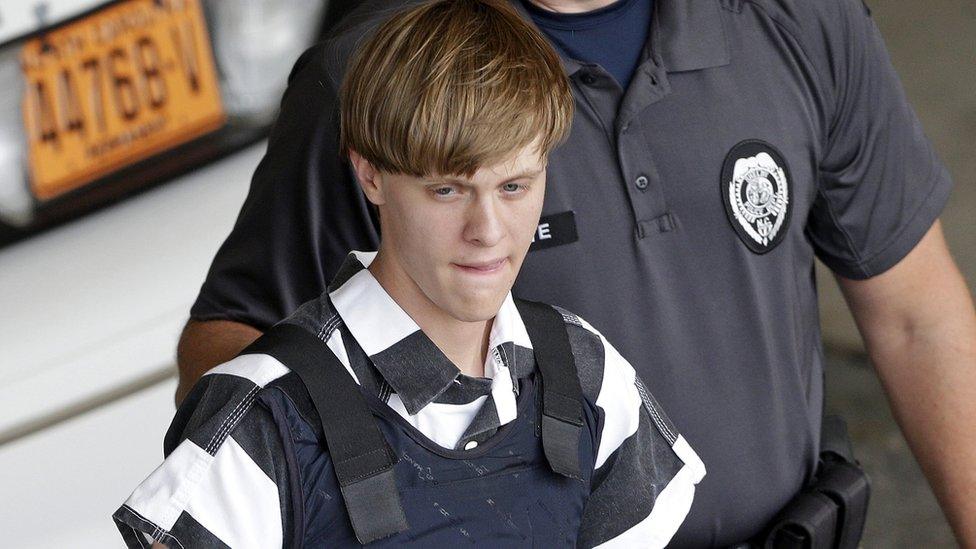New Orleans removes first of four Confederate statues
- Published
Confederate monuments being removed in New Orleans
Masked New Orleans workers in bullet-proof vests have removed a Confederate monument that officials said was a symbol of the US South's racist past.
Watched by police snipers, the statue was gone before dawn in a stealthy operation designed to foil protests.
The statues will be relocated to "a place where they can be put in historical context", the city said.
New Orleans Mayor Mitch Landrieu said workers had faced "intense" intimidation and threats.
The last chunk of the Battle of Liberty Place obelisk was hauled away in lorries, whose registration plates were covered, by around 05:30 on Monday after four hours.
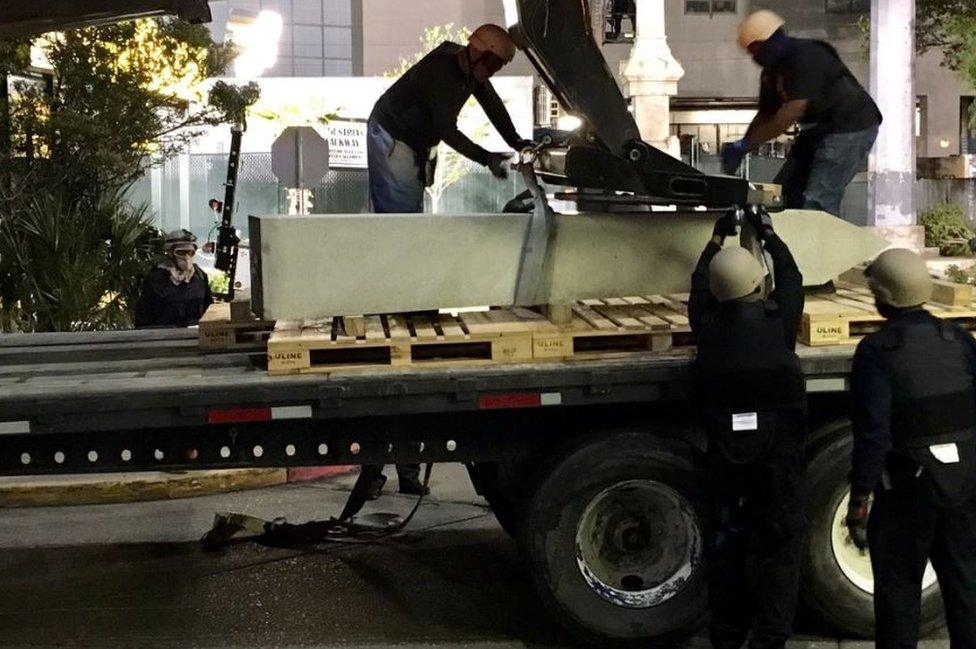
New Orleans is removing four statues built between 1884-1915
First erected in 1891, it commemorated the Crescent City White League's attempt to overthrow the post-Civil War government.
The monument's original inscription hailed "white supremacy in the South", but this was more recently replaced with another plaque recognising "Americans on both sides" who died during the war.
Mayor Landrieu called it the "most offensive" of the majority African-American city's memorials.
"The removal of these statues sends a clear and unequivocal message to the people of New Orleans and the nation: New Orleans celebrates our diversity, inclusion and tolerance," Mr Landrieu said on Monday.
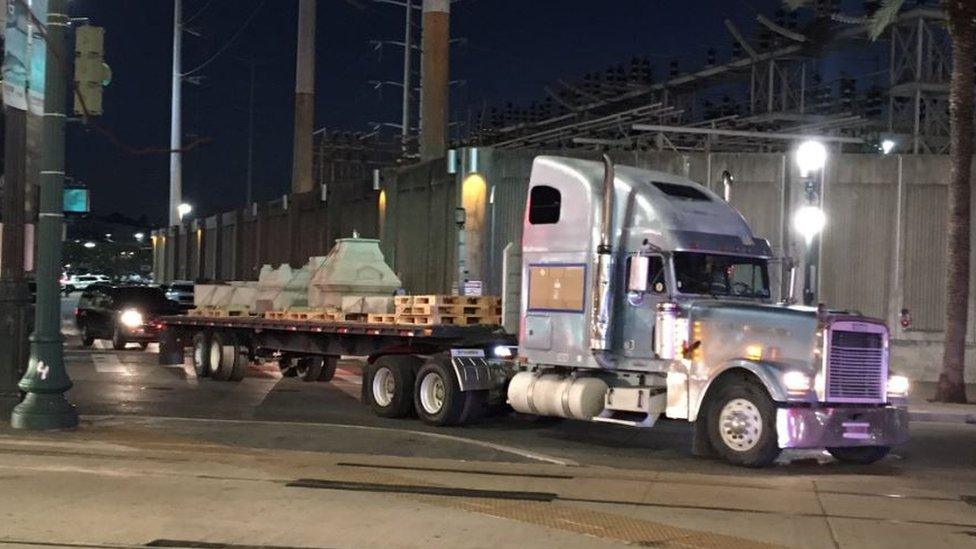
Lorry number plates were covered to protect the workers' identities
Elected officials in the city voted 6-1 to remove four monuments to the Confederacy, the southern states who seceded from the US, sparking the 1861-65 American Civil War.
Activists opposed to the removals have staged vigils, and a car belonging to one worker hired by the city was set on fire.
Supporters of the monuments say they are a cultural legacy that promotes heritage rather than racism.
The decision to remove the statues came in December 2015 after a white supremacist shot dead nine black worshippers at a South Carolina church.
- Published23 December 2015
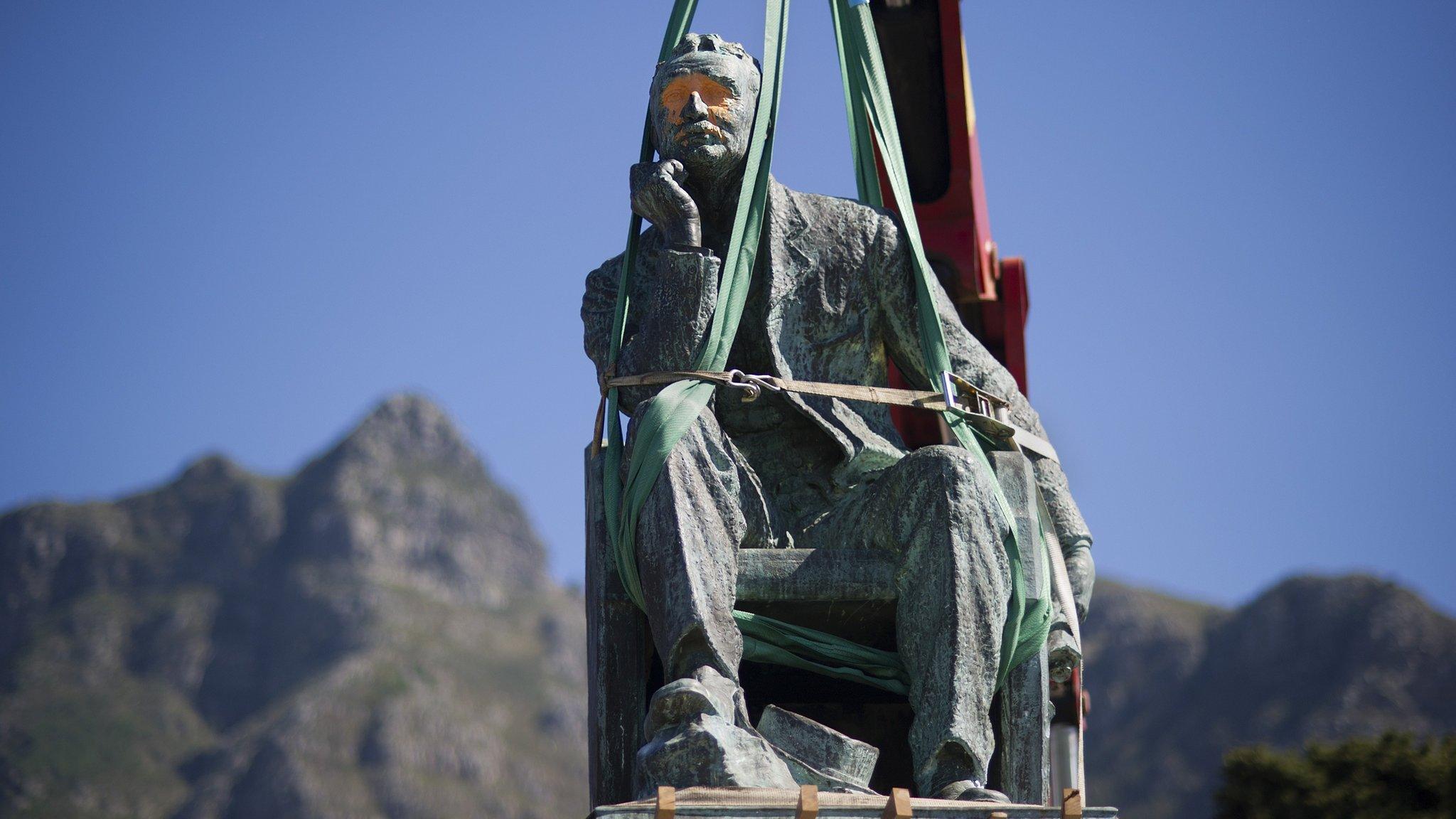
- Published24 June 2015
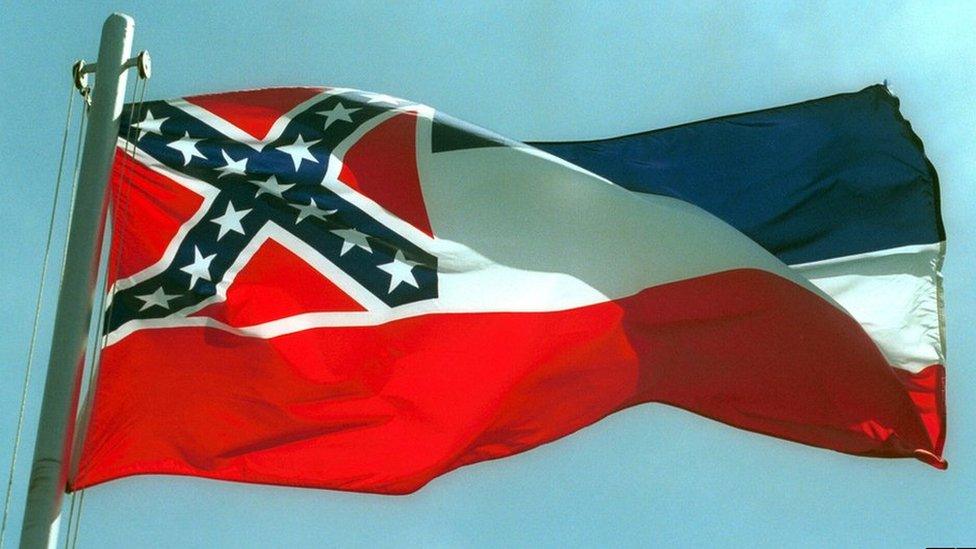
- Published12 February 2017
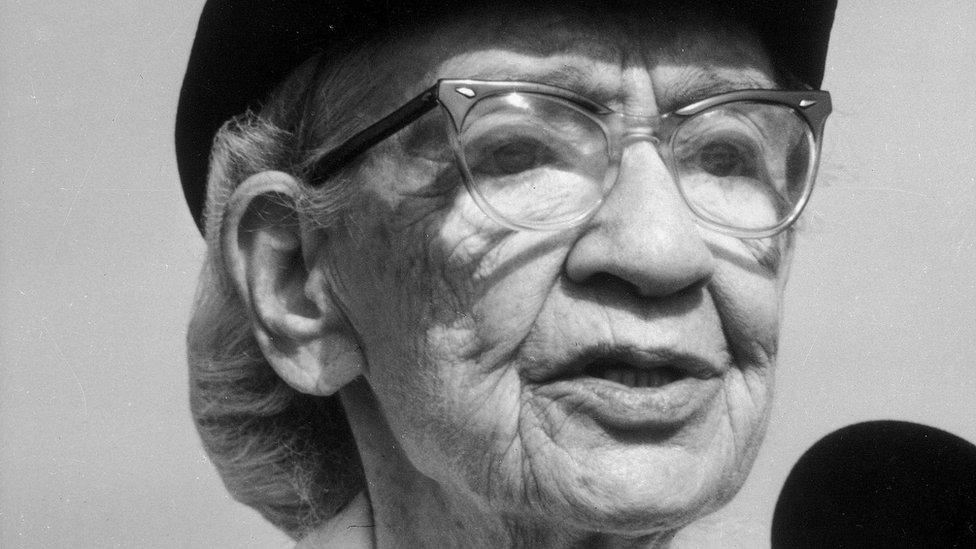
- Published10 January 2017
